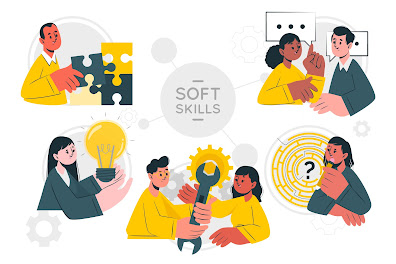Ensuring Fairness and Inclusivity in Vocational Assessments: A Guide for Level 3 CAVA
Introduction:
Welcome to our exploration of strategies aimed at guaranteeing fairness, impartiality, and inclusivity in vocational assessments, specifically within the context of the Level 3 Certificate in Assessing Vocational Achievement (CAVA). As assessors, it's crucial to align our practices with the principles of equality and diversity to create an environment where all learners can thrive.
Understanding Equality and Diversity
Before we dive into specific strategies, let's establish a common understanding of equality and diversity. Equality ensures that everyone has equal opportunities, irrespective of their background, while diversity acknowledges and values differences. In vocational assessments, embracing equality and diversity means recognizing and accommodating the unique strengths and challenges of each learner.
1. Clear Assessment Criteria:
To promote fairness, start by establishing transparent and clear assessment criteria. Ensure that all learners understand the expectations and standards. This clarity helps in maintaining consistency and reduces the chances of bias during evaluations.
2. Inclusive Language and Imagery:
Language matters. Use inclusive language in assessment materials, avoiding terms that might be exclusive or favour one group over another. Similarly, ensure that any imagery used in assessments is diverse and representative of various backgrounds.
3. Varied Assessment Methods:
Recognize that individuals have different learning styles and preferences. Incorporate a variety of assessment methods, such as practical tasks, written assessments, and oral presentations. This ensures that every learner has an opportunity to showcase their skills in a way that suits them best.
4. Flexible Assessment Timing:
5. Cultural Sensitivity:
Acknowledge and respect the diverse cultural backgrounds of learners. Avoid assessments that may unintentionally favour one culture over another. This can be achieved by incorporating a range of examples and scenarios that resonate with a variety of cultural perspectives.
6. Regular Training for Assessors:
Equip assessors with regular training on equality and diversity. This training should focus on identifying and addressing unconscious biases, fostering cultural competence, and promoting an inclusive assessment environment
7. Support for Learners with Additional Needs:
Recognize that some learners may require additional support due to disabilities or learning difficulties. Work closely with support services to provide reasonable adjustments, ensuring that every learner has an equal chance to succeed.
8. Collecting and Analyzing Data:
Regularly collect and analyze data on assessment outcomes to identify any patterns or trends that may suggest bias. This proactive approach allows assessors to address potential issues promptly and make necessary adjustments.
9. Feedback for Continuous Improvement:
Establish a feedback loop where learners can provide input on the assessment process. Use this feedback to continually improve and refine assessment methods, making them more responsive to the diverse needs of learners.
Conclusion
In conclusion, the principles of equality and diversity should be at the forefront of every vocational assessment within the Level 3 CAVA framework. By implementing the strategies discussed, assessors can contribute to creating an environment where learners feel valued, included, and confident in showcasing their vocational skills. Embracing fairness and inclusivity is not just a commitment to learners; it's a commitment to the integrity and effectiveness of vocational education as a whole.
.jpg)


Comments
Post a Comment